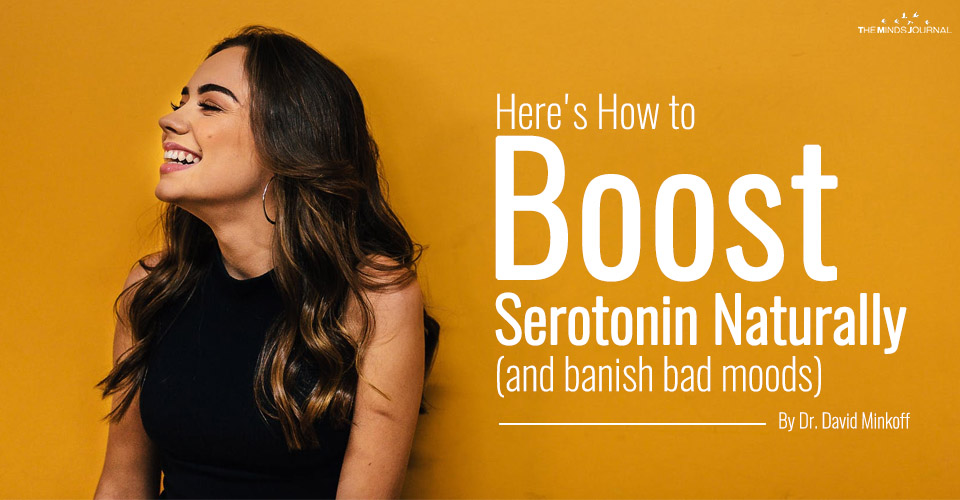You’ve probably heard of serotonin, as it’s one of the most important and most talked-about chemicals in health. As a neurotransmitter, serotonin is heavily involved in the brain’s internal messaging system. And while it’s widely viewed as the “happiness” chemical, it’s actually involved in a number of complex processes throughout the mind and body.
Based on a substantial amount of research, scientists have long believed that when a human being lacks enough serotonin or has a problem with the uptake mechanism of serotonin, that dearth contributes to anxiety and depression. However, the “serotonin model” is still just one hypothesis about how these mental illnesses work, and the relationship between them is still being worked out. The fact that serotonin levels do play a part in mood, however, is indisputable.
So if not having enough serotonin to go around (it does have a lot of jobs, after all) is partially responsible for feelings of anxiety, fatigue, irritability, or sadness, what can you do to get more? Unfortunately, serotonin isn’t something you can just order in a bottle or find naturally in foods. Your body has to produce it on its own. What it uses to make serotonin, though — that’s a different story.
Scientists estimate that over 90 percent of serotonin is created in your intestines. The recipe is simple — it comes from a single amino acid called tryptophan. Wait, isn’t that the stuff that’s famous for making you fall asleep after a big turkey dinner? Yes — and it’s also your body’s raw source of serotonin. Given that low serotonin levels are also associated with certain sleep disorders and disruption of the circadian rhythm, the whole thing starts to resemble a “connect-the-dots” picture.
To review: to maintain healthy brain function, sleep patterns, and mood, your body needs serotonin — which you can’t get through food. In order to produce serotonin, it needs tryptophan — which you can get through food. But which foods?
You can find tryptophan in a lot of places, but it’s especially common in high-protein foods. Good sources of it include salmon, chicken, eggs, cheese, spinach, soy, nuts, and seeds. Here’s a separate list of 17 additional food choices.
That said, you need to consider more than just a tryptophan-heavy diet. To maximize serotonin production, you’ve also got to have a healthy micro-environment within the digestive system. Prebiotic and probiotic foods are a good place to start to establish that ideal environment. You also want to minimize the number of refined sugars and saturated fats in your diet.
Research also shows that getting sunshine daily helps — especially during the winter months when symptoms of Seasonal Affective Disorder (SAD) are the most common. Perhaps unsurprisingly, SAD is also linked to low serotonin levels.
Despite the realities of serotonin levels, the reality is that feeling positive is often about maintaining a balance. Diet, exercise, sleep, an optimistic outlook, and gratitude practices all play key roles in improving your mood. Still, your ability to be consistent in each of those is largely regulated by your brain at the neurochemical level — meaning you always want to give it what it needs to work in your favor. Eat healthier, live healthier, feel better — it’s an empowering cycle that, once in place, is hard to beat.
You May Also Like:
- Untreated Depression Can Change the Brain Over Time – Study Says
- Neuroscience of Anxiety in the Bright Brain
- 3 Mental and Behavioral Disorders That Neurocore Brain Performance Centers Can Help With
- 4 Simple Daily Practices That Can Make You Happier (Based On Brain Research)










Leave a Reply